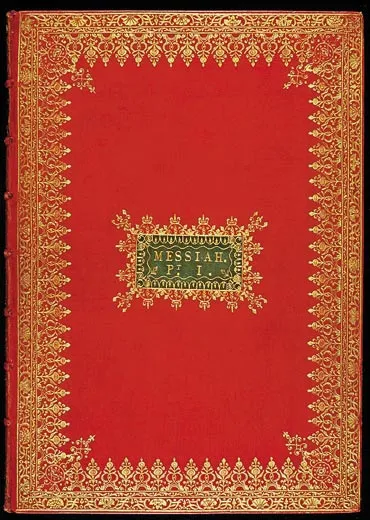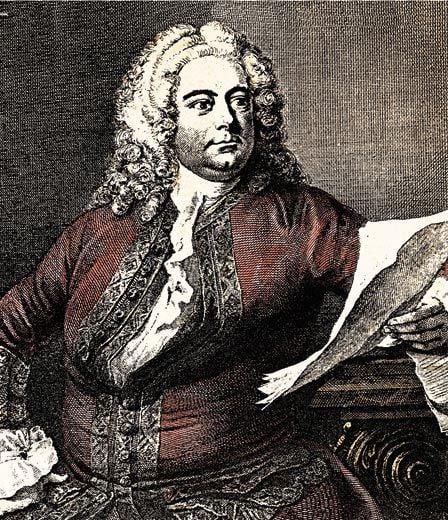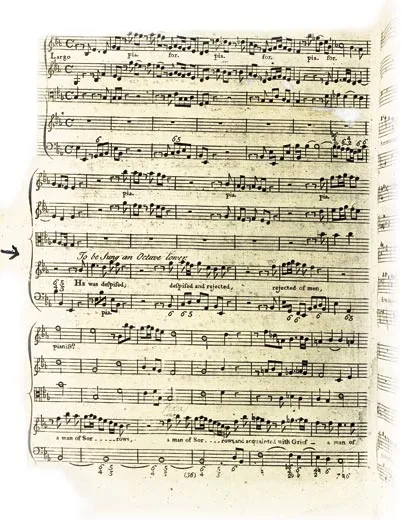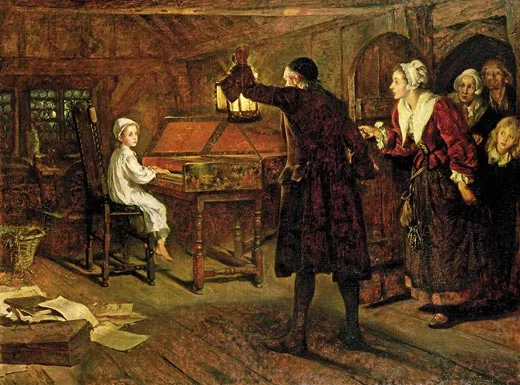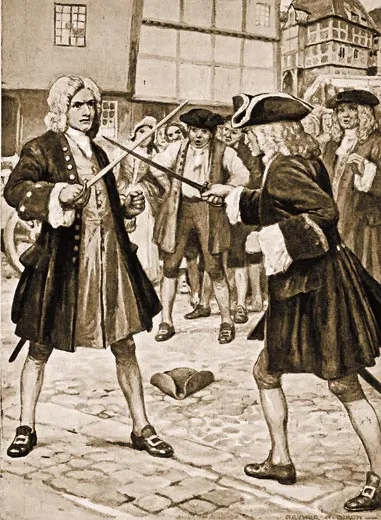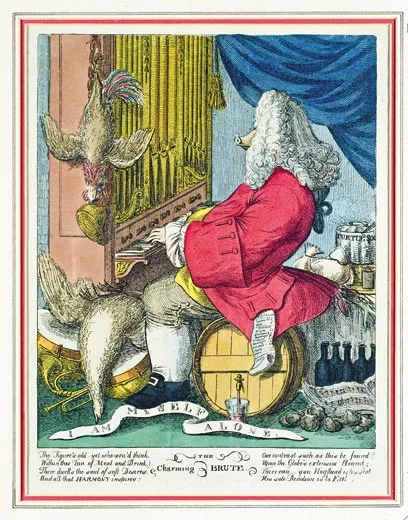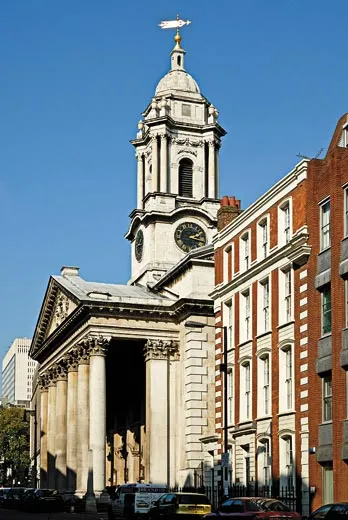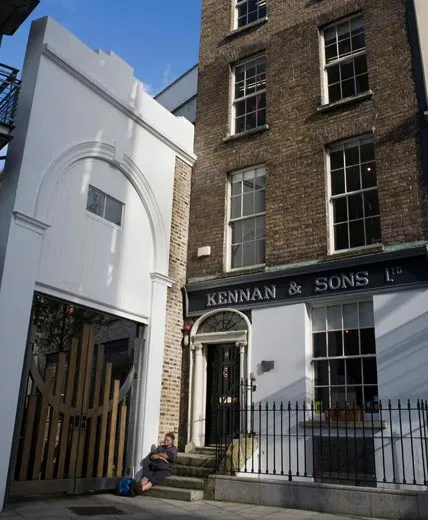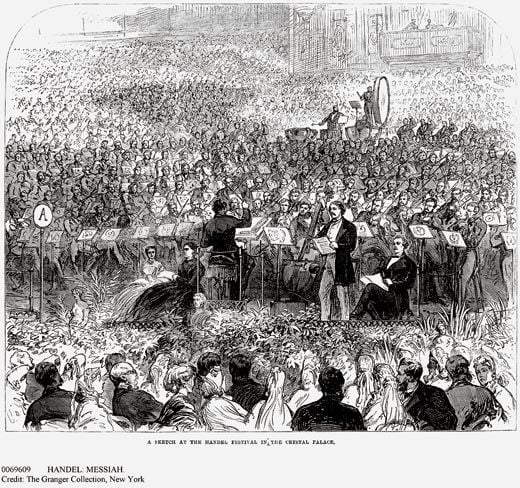The Glorious History of Handel’s Messiah
A musical rite of the holiday season, the Baroque-era oratorio still awes listeners more than 250 years after the composer’s death
/https://tf-cmsv2-smithsonianmag-media.s3.amazonaws.com/filer/Handel-Messiah-631.jpg)
George Frideric Handel's Messiah was originally an Easter offering. It burst onto the stage of Musick Hall in Dublin on April 13, 1742. The audience swelled to a record 700, as ladies had heeded pleas by management to wear dresses "without Hoops" in order to make "Room for more company." Handel's superstar status was not the only draw; many also came to glimpse the contralto, Susannah Cibber, then embroiled in a scandalous divorce.
The men and women in attendance sat mesmerized from the moment the tenor followed the mournful string overture with his piercing opening line: "Comfort ye, comfort ye my people, saith your God." Soloists alternated with wave upon wave of chorus, until, near the midway point, Cibber intoned: "He was despised and rejected of men, a man of sorrows and acquainted with grief." So moved was the Rev. Patrick Delany that he leapt to his feet and cried out: "Woman, for this be all thy sins forgiven thee!"
Now, of course, Messiah is a fixture of the Christmas season. Woe to the concert hall in the United States or Britain that fails to schedule the piece around the holiday, when, as well, CD sales and Web downloads of the oratorio soar. For many amateur choirs, the work is the heart of their repertoire and the high point of the year. In most of Handel's oratorios, the soloists dominate and the choir sings only brief choruses. But in Messiah, says Laurence Cummings, director of the London Handel Orchestra, "the chorus propels the work forward with great emotional impact and uplifting messages."
This year, the 250th anniversary of Handel's death, has been a boon to the Baroque composer and his best-known work. The commemoration has centered in London, where Handel lived for 49 years, until his death in 1759 at age 74. The BBC has broadcast all of his operas, more than 40 in total, and every one of the composer's keyboard suites and cantatas was performed during the annual London Handel Festival, which included concerts at St. George's Hanover Square church, where Handel worshiped, and at the Handel House Museum ("See Handel Slept Here,"), longtime residence of the man that Ludwig van Beethoven himself, citing Messiah, said was the "greatest composer that ever lived."
He was born in Halle, Germany, into a religious, affluent household. His father, Georg Händel, a celebrated surgeon in northern Germany, wanted his son to study the law. But an acquaintance, the Duke of Weissenfels, heard the prodigy, then barely 11, playing the organ. The nobleman's recognition of the boy's genius likely influenced the doctor's decision to allow his son to become a musician. By 18, Handel had composed his first opera, Almira, initially performed in Hamburg in 1705. During the next five years, he was employed as a musician, composer and conductor at courts and churches in Rome, Florence, Naples and Venice, as well as in Germany, where the Elector of Hanover, the future King George I of England, was briefly his patron.
Handel's restless independence contrasted him with the other great composer of the age, Johann Sebastian Bach (1685-1750), whom he did not meet. "Bach never moved out of the cocoon of court patronage or church employment," says Harry Bicket, a conductor, harpsichordist and London-based director of The English Concert chamber orchestra. Handel, on the other hand, rarely attached himself to any benefactor for long, although he would compose court music when asked. He wrote The Water Music (1717), one of the few of his pieces other than Messiah recognizable to the average concertgoer, for George I, to be performed for the monarch as His Majesty's barge navigated through a London canal on a summer evening. "But [Handel] didn't hang around palace antechambers waiting for his lordship or royal highness," says Jonathan Keates, author of Handel: The Man and his Music.
Such free-spirited musical entrepreneurship was more than possible in London, to which Handel moved permanently in 1710. A commercial boom underpinned by overseas trade had created a thriving new merchant and professional class that broke the monopoly on cultural patronage by the nobility. Adding zest to the London music scene were rivalries that split the audience into two broad musical camps. On one side were defenders of the more conventional Italian opera style, who idolized the composer Giovanni Bononcini (1670-1747) and brought him to London. Enthusiasts of Handel's new Italian operas cast their lot with the German-born composer. The partisanship was captured in a 1725 verse by poet John Byrom:
Some say compared to Bononcini,
That Mynheer Handel's but a Ninny;
Others aver, that he to Handel
Is scarcely fit to hold a Candle
Increasingly elaborate opera productions led to rising costs due, in part, to hiring musicians and singers from Italy. "It was generally agreed Italian singers were better trained and more talented than local products," notes Christopher Hogwood, a Handel biographer and founder of the Academy of Ancient Music, the London period-instrument orchestra he directs. But beautiful voices were often accompanied by mercurial temperaments. At a 1727 opera performance, Handel's leading sopranos, Francesca Cuzzoni and Faustina Bordoni, actually came to blows onstage, with their partisans cheering them on. "Shame that two such well-bred ladies should call [each other] Bitch and Whore, should scold and fight," John Arbuthnot (1667-1735), the mathematician and satirist, wrote in a pamphlet describing the increasing hysteria of London's opera world.
In the 1730s, the emotional and financial toll of producing operas, as well as changing audience tastes, contributed to Handel's growing interest in sacred oratorios—which required neither elaborate scenery nor foreign stars—including, eventually, Messiah. "With oratorios, Handel could be more his own master," says Keates.
Despite his fame, Handel's inner life remains enigmatic. "We know far more about the environment in which he lived and the sort of people he knew than about his private life," Keates adds. Part of the explanation lies in the dearth of personal letters. We must rely on contradictory descriptions of Handel by admirers and detractors, whose opinions were colored by the musical rivalries of 1700s London.
Although he neither married nor was known to have had a long-lasting romantic relationship, Handel was pursued by various young women and a leading Italian soprano, Vittoria Tarquini, according to accounts by his contemporaries. Intensely loyal to friends and colleagues, he was capable of appalling temper outbursts. Because of a dispute over seating in an orchestra pit, he fought a near-fatal duel with a fellow composer and musician, Johann Mattheson, whose sword thrust was blunted by a metal button on Handel's coat. Yet the two remained close friends for years afterward. During rehearsals at a London opera house with Francesca Cuzzoni, Handel grew so infuriated by her refusal to follow his every instruction that he grabbed her by the waist and threatened to hurl her out an open window. "I know well that you are a real she-devil, but I will have you know that I am Beelzebub!" he screamed at the terrified soprano.
Handel, who grew increasingly obese over the years, certainly had an intimidating physique. "He paid more attention to [food] than is becoming to any man," wrote Handel's earliest biographer, John Mainwaring, in 1760. Artist Joseph Goupy, who designed scenery for Handel operas, complained that he was served a meager dinner at the composer's home in 1745; only afterward did he discover his host in the next room, secretly gorging on "claret and French dishes." The irate Goupy produced a caricature of Handel at an organ keyboard, his face contorted into a pig snout, surrounded by fowl, wine bottles and oysters strewn at his feet.
"He may have been mean with food, but not with money," says Keates. Amassing a fortune through his music and shrewd investments in London's burgeoning stock market, Handel donated munificently to orphans, retired musicians and the ill. (He gave his portion of his Messiah debut proceeds to a debtors' prison and hospital in Dublin.) A sense of humanity imbues his music as well—a point often made by conductors who compare Handel with Bach. But where Bach's oratorios exalted God, Handel was more concerned with the feelings of mortals. "Even when the subject of his work is religious, Handel is writing about the human response to the divine," says conductor Bicket. Nowhere is this more apparent than in Messiah. "The feelings of joy you get from the Hallelujah choruses are second to none," says conductor Cummings. "And how can anybody resist the Amen chorus at the end? It will always lift your spirits if you are feeling down."
Handel composed Messiah in an astounding interlude, somewhere between three and four weeks in August and September 1741. "He would literally write from morning to night," says Sarah Bardwell of the Handel House Museum in London. The text was prepared in July by the prominent librettist, Charles Jennens, and was intended for an Easter performance the following year. "I hope [Handel] will lay out his whole Genius & Skill upon it, that the Composition may excel all his former Compositions, as the Subject excels every other Subject," Jennens wrote to a friend.
There were several reasons for the choice of Dublin for Messiah's debut. Handel had been downcast by the apathetic reception that London audiences had given his works the previous season. He did not want to risk another critical failure, especially with such an unorthodox piece. Other Handel oratorios had strong plots anchored by dramatic confrontations between leading characters. But Messiah offered the loosest of narratives: the first part prophesied the birth of Jesus Christ; the second exalted his sacrifice for humankind; and the final section heralded his Resurrection.
Dublin was one of the fastest-growing, most prosperous cities in Europe, with a wealthy elite eager to display its sophistication and the economic clout to stage a major cultural event. "So it was a great advantage for Handel to make the voyage to Dublin to try out his new work, and then bring it back to London," says Keates, comparing the composer to Broadway producers who tried out plays in New Haven before staging them in New York City.
Messiah's success in Dublin was in fact quickly repeated in London. It took time for Messiah to find its niche as a Christmas favorite. "There is so much fine Easter music—Bach's St. Matthew Passion, most especially—and so little great sacral music written for Christmas," says Cummings. "But the whole first part of Messiah is about the birth of Christ." By the early 19th century, performances of Messiah had become an even stronger Yuletide tradition in the United States than in Britain.
There is little doubt about Handel's own fondness for the work. His annual benefit concerts for his favorite charity—London's Foundling Hospital, a home for abandoned and orphaned children—always included Messiah. And, in 1759, when he was blind and in failing health, he insisted on attending an April 6 performance of Messiah at the Theatre Royal in Covent Garden. Eight days later, Handel died at home.
His total estate was assessed at 20,000 pounds, which made him a millionaire by modern standards. He left the bulk of his fortune to charities and much of the remainder to friends, servants and his family in Germany. His one posthumous present to himself was £600 for his own monument at Westminster Abbey, final resting place for British monarchs and their most accomplished subjects. Three years after Handel's death, the monument by French sculptor Louis François Roubillac, was installed.
Abroad, Handel's reputation—and that of his best-known composition—only continued to grow. Mozart paid Handel the supreme compliment of reorchestrating Messiah in 1789. Even Mozart, however, confessed himself to be humble in the face of Handel's genius. He insisted that any alterations to Handel's score should not be interpreted as an effort to improve the music. "Handel knows better than any of us what will make an effect," Mozart said. "When he chooses, he strikes like a thunderbolt."
Classical music aficionado Jonathan Kandell is based in New York City.
